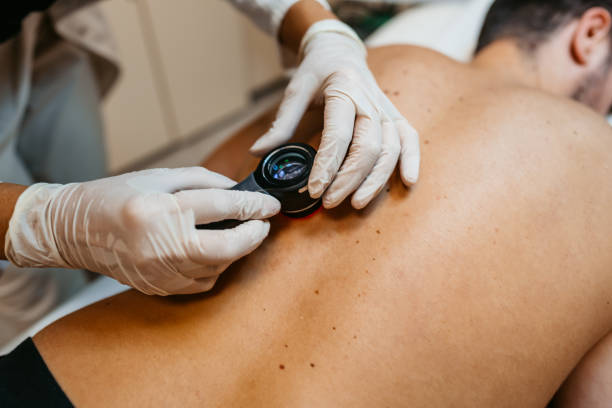Australia’s challenging ultraviolet radiation levels make regular skin cancer screening an essential health priority for Melbourne residents, with the city’s diverse population facing varying risk factors based on skin type, occupational exposure, and lifestyle patterns. Navigating the healthcare system to secure appropriate screening services requires understanding the available options, preparing adequately for appointments, and recognizing the qualifications that distinguish reputable practitioners from less experienced providers. Booking a Melbourne skin cancer check near you involves strategic planning that considers accessibility, practitioner expertise, and the comprehensive nature of screening services offered by different healthcare facilities throughout the metropolitan area.
Understanding Melbourne’s Skin Cancer Landscape
Melbourne’s geographic location exposes residents to intense ultraviolet radiation throughout the year, with the Australian Bureau of Meteorology consistently recording UV index levels that exceed international safety thresholds. This environmental reality, combined with the city’s predominantly fair-skinned population, creates heightened skin cancer risk that necessitates regular professional screening.
Victorian Cancer Registry data reveals that Melbourne residents face melanoma incidence rates approximately 40% higher than global averages, with basal cell carcinoma and squamous cell carcinoma occurring at similarly elevated frequencies. These statistics underscore the critical importance of establishing regular screening schedules with qualified healthcare providers who understand local risk factors and demographic patterns.
The city’s healthcare infrastructure has evolved to address these challenges through specialized skin cancer clinics, dermatology practices, and general practitioners with advanced training in dermatoscopy and skin cancer detection. Understanding this landscape helps residents make informed decisions about screening providers and appointment scheduling.
Identifying Qualified Healthcare Providers
Selecting appropriate healthcare providers for skin cancer screening requires evaluating credentials, experience levels, and diagnostic capabilities that ensure comprehensive examination quality. Melbourne’s healthcare system includes various practitioner types, each offering different levels of specialization and diagnostic sophistication.
Dermatologists represent the highest level of specialization, possessing advanced training in skin pathology, surgical procedures, and complex case management. These specialists typically maintain affiliations with major teaching hospitals and participate in ongoing research initiatives that keep their knowledge current with emerging diagnostic techniques and treatment protocols.
General practitioners with specialized training in skin cancer detection offer accessible screening services for routine examinations and risk assessment. Many Melbourne GP practices have invested in advanced dermatoscopy equipment and digital imaging systems that enhance diagnostic accuracy while providing convenient neighborhood access for regular screening appointments.
Preparing for Effective Screening Appointments
Successful skin cancer screening requires adequate preparation that maximizes diagnostic effectiveness while ensuring comprehensive examination coverage. This preparation process involves several key components that patients should address before attending appointments.
Medical history documentation plays a crucial role in screening effectiveness, requiring patients to compile information about previous skin cancer diagnoses, family history of skin cancer, unusual mole changes, and current medications that might affect skin appearance or healing. This information helps practitioners assess individual risk levels and focus attention on areas requiring detailed examination.
Skin preparation involves avoiding self-tanning products, temporary tattoos, and heavy makeup that might obscure skin lesions or interfere with dermatoscopic examination. Patients should also prepare lists of questions about suspicious lesions, prevention strategies, and follow-up care recommendations that address their specific concerns and circumstances.
Technology and Diagnostic Capabilities
Modern skin cancer screening incorporates advanced diagnostic technologies that enhance detection accuracy and improve patient outcomes. Melbourne’s leading skin cancer clinics utilize digital dermatoscopy, computer-assisted diagnosis systems, and high-resolution imaging that enables detailed lesion analysis and accurate documentation.
Digital dermatoscopy systems provide magnified visualization of skin structures that remain invisible to naked-eye examination. These systems enable practitioners to identify early melanoma indicators, assess lesion symmetry, and document changes over time through comparative imaging analysis.
Artificial intelligence applications increasingly support diagnostic decision-making through pattern recognition algorithms that analyze dermatoscopic images for suspicious characteristics. While these technologies supplement rather than replace clinical expertise, they provide valuable diagnostic support that enhances screening accuracy and consistency.
Scheduling and Accessibility Considerations
Effective skin cancer screening requires regular appointment scheduling that accommodates individual risk factors and lifestyle constraints. Melbourne’s healthcare system offers various scheduling options that balance accessibility with diagnostic quality and practitioner availability.
Online booking platforms provided by many Melbourne skin cancer clinics enable convenient appointment scheduling while providing access to practitioner information, service descriptions, and pricing transparency. These platforms often include patient portal features that facilitate medical history updates and appointment reminders.
Geographic accessibility considerations include transportation options, parking availability, and public transport connections that affect appointment attendance consistency. Many Melbourne residents benefit from selecting providers within reasonable travel distances that support regular screening schedules rather than sporadic appointments with distant specialists.
Insurance and Cost Management
Understanding insurance coverage and cost structures helps Melbourne residents access appropriate screening services while managing healthcare expenses effectively. Various insurance arrangements provide different levels of coverage for skin cancer screening, requiring patients to understand their specific policy provisions and out-of-pocket responsibilities.



